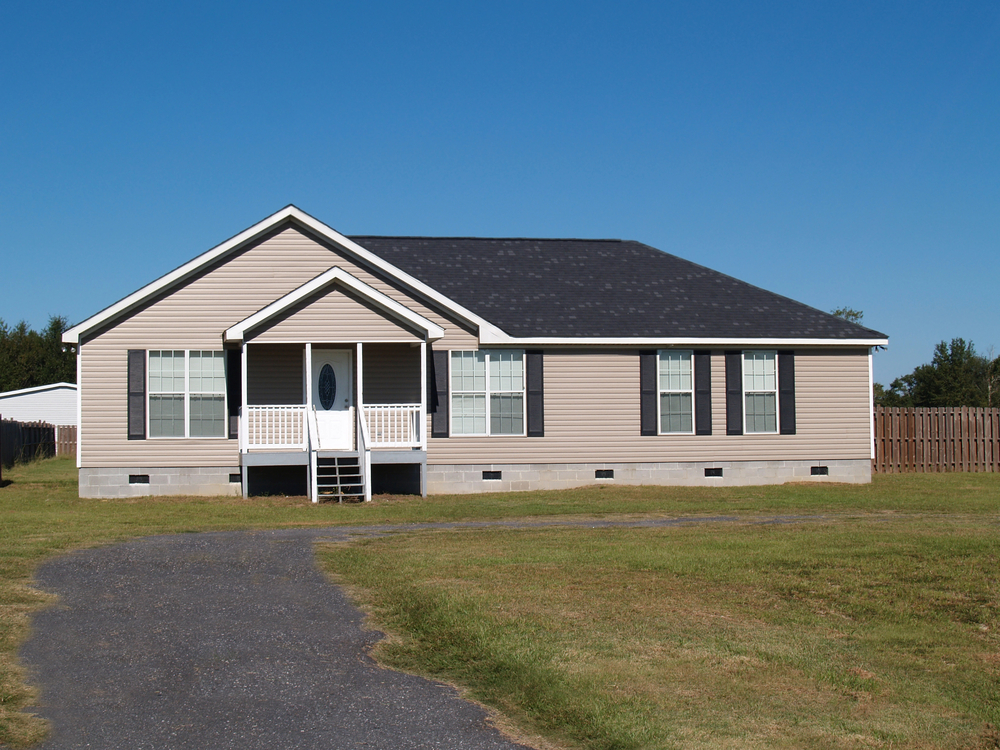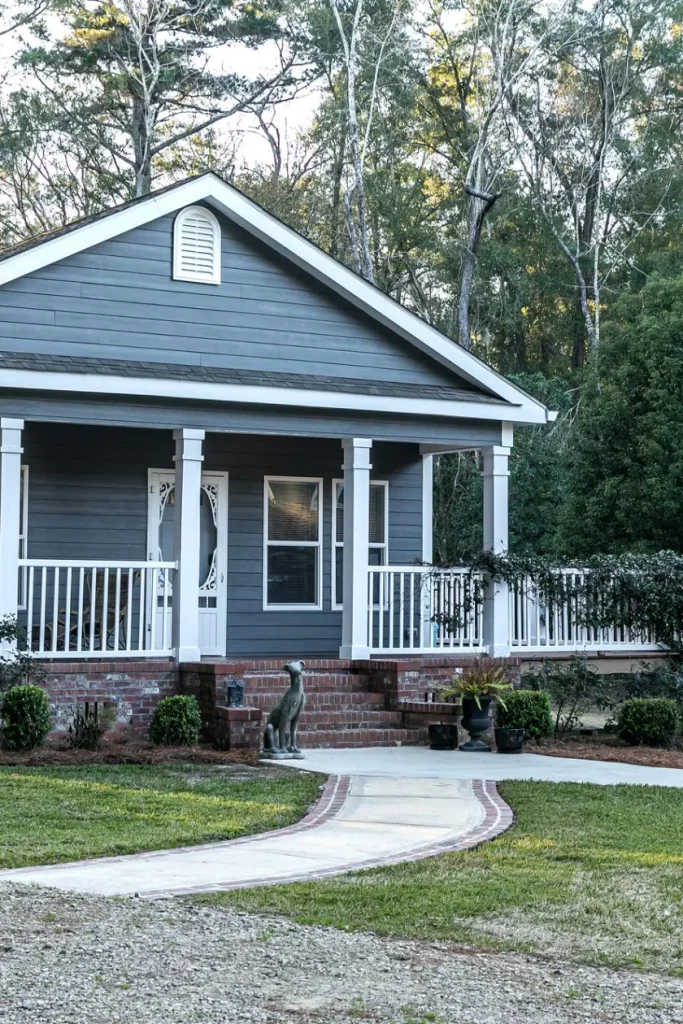Manufactured homes provide a wide variety of benefits for their homeowners. Not only are they far more affordable than traditional homes, but their smaller footprint makes them much easier to maintain. Purchasing a manufactured home can be an exciting experience, especially when downsizing from a larger home and relocating to a more tight-knit community.
One of the biggest decisions you will make about your new manufactured home, aside from the floor plans and where you’ll live, of course, is about heating and cooling. And in the colder climates to the north, reliable heating is not just a luxury—it’s a necessity. That’s why heat pumps are becoming increasingly popular. They’re affordable, super reliable, and often just what you need to stay warm all year round.
Why a Heat Pump is the Best Option for Your Manufactured Home

To start, the type of manufactured home you buy, really does matter. You want to find a high-quality floor plan that suits your needs, design options that will help you to feel at home and provide the luxuries you deserve, and land that works well with the ultimate arrangement you are going for. And like we said, you need to ensure that whatever you invest in for heating and cooling meets the demands you will place on it.
And a heat pump is definitely the way to go. Here’s why.
1. Maximizing Energy Efficiency
Heat pumps are smart for keeping your manufactured home comfortable without breaking the bank. They work by moving heat rather than creating it, which uses less energy.
This means you can enjoy a warm home during the winter and a cool one in the summer while keeping your energy bills low. Investing in a heat pump is a great way to manage your expenses and stay comfy no matter the season.
2. Increasing Home Value
Adding a heat pump to your manufactured home can also increase its market value and appeal. Today’s homebuyers are looking for homes that are cozy, well-designed, and equipped with efficient heating and cooling systems.
Though a heat pump does require a healthy upfront investment—typically between $4,200 and $7,600—it’s a modern feature that can make your home stand out in the competitive real estate market.
3. Year-Round Comfort
With a heat pump, you’re set for comfort all year long. This system adjusts to the seasons, providing warmth in the winter and cooling relief in the summer. This adaptability ensures you can always find refuge in your home, regardless of the weather.
Let’s use the state of Washington as an example. Winter temperatures can easily reach the 20s and 30s during the evening hours. For that reason, you need a heating source—aka a heat pump—that can keep your manufactured home comfortably warm without overheating.
4. Enhanced Indoor Air Quality
Heat pumps help maintain a healthier indoor environment by continuously circulating and filtering the air. This reduces the presence of dust, pollen, and other allergens, making the air inside your home cleaner and fresher.
If you or your family members are sensitive to allergens or have respiratory issues, a heat pump can improve the air you breathe every day, greatly improving your quality of life. Plus, heat pumps are known to create a 20% reduction in greenhouse gas emissions compared to gas broilers. So not only will a heat pump improve the air quality in your home, it will help the environment, too.
5. Low Maintenance Requirements
One of the benefits of manufactured home living is that they are relatively low maintenance. And, one of the best parts about having a heat pump is that it requires less upkeep compared to traditional furnaces or air conditioning units.
This means fewer worries about costly repairs or frequent service calls. A heat pump provides a reliable and efficient way to manage your home’s climate. That gives you more time to enjoy your home.
What to Look For in a Heat Pump For Your Manufactured Home

When choosing a heat pump for your manufactured home, consider a few key factors to ensure you get the most efficient and effective system. Check the efficiency ratings of different models. Look for a high Seasonal Energy Efficiency Ratio (SEER) and Heating Seasonal Performance Factor (HSPF); these ratings indicate how well the unit uses electricity to heat and cool your space.
Understanding the functionality of a heat pump is also a must. Ensure that the model you choose can effectively heat and cool, given the typical climate in your area. Additionally, be sureto select the right sizw. Since most manufactured homes range from 1,000 to 2,000 square feet, a system that provides between 24,000 and 36,000 BTUs should be sufficient. Choosing a unit that’s too large or too small can lead to inefficiencies and increased energy costs.
Install Your Heat Pump in the Spring, Summer, or Fall to be Prepared for Winter
Finally, while it is possible to install a heat pump on your own—the DIY approach—we don’t recommend it. Work with your manufactured home dealer to have your heat pump installed when your home is delivered. Professional installation is your best bet to ensure your new heat pump operates as it should, and doesn’t create risk of a fire or electrical spark.

